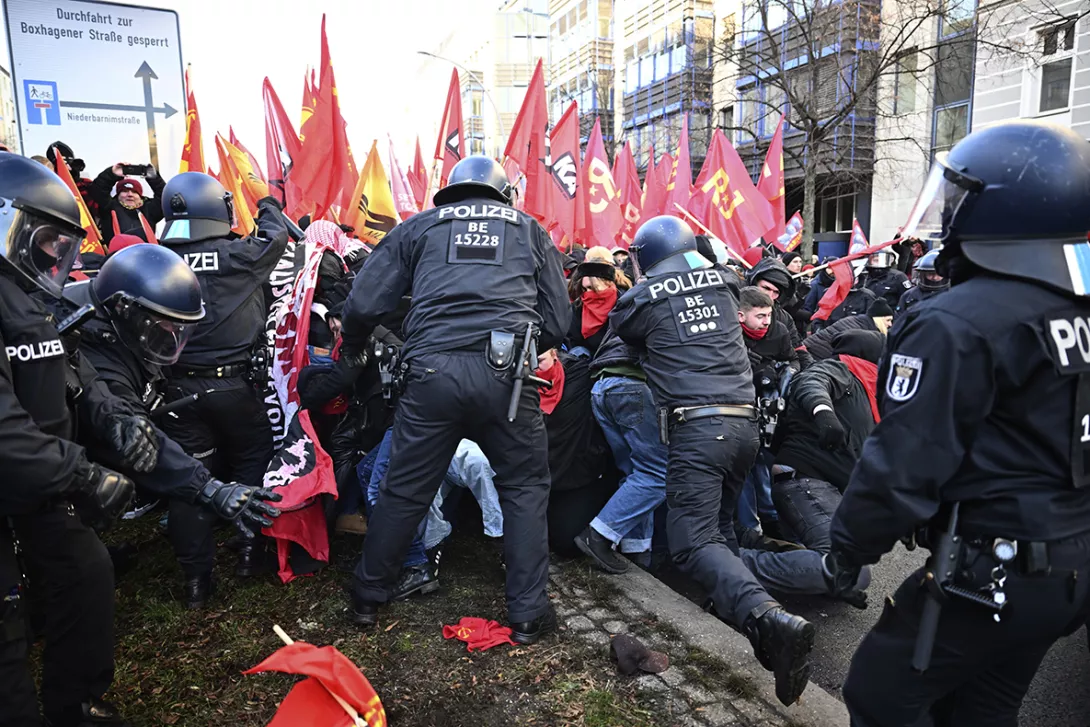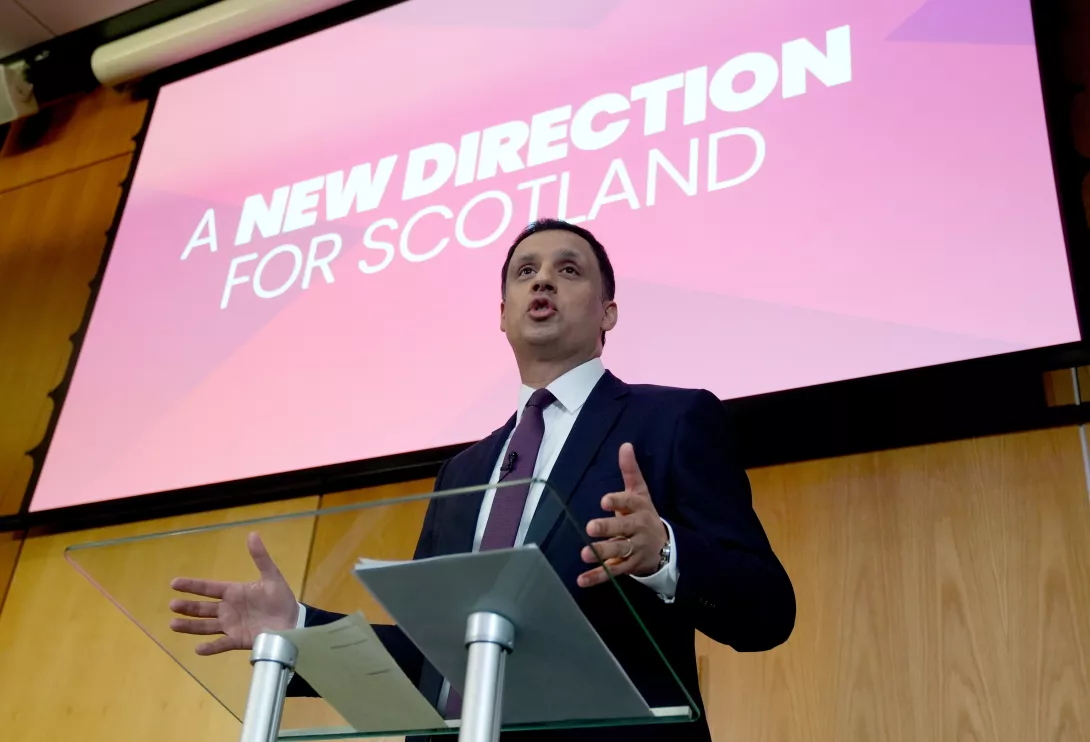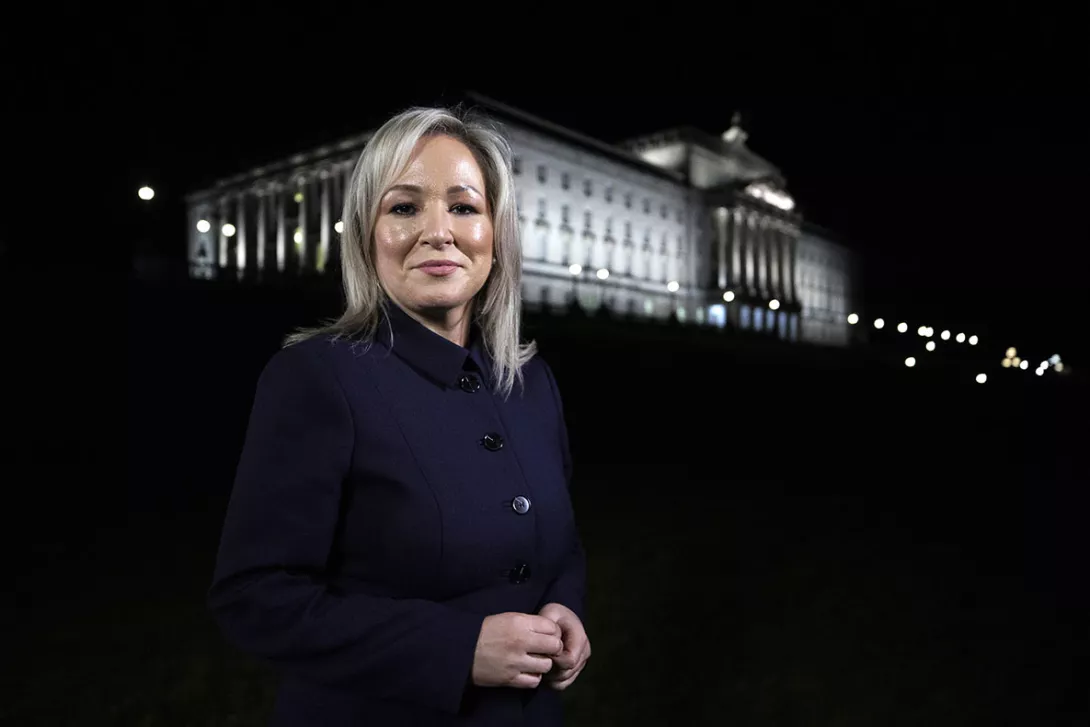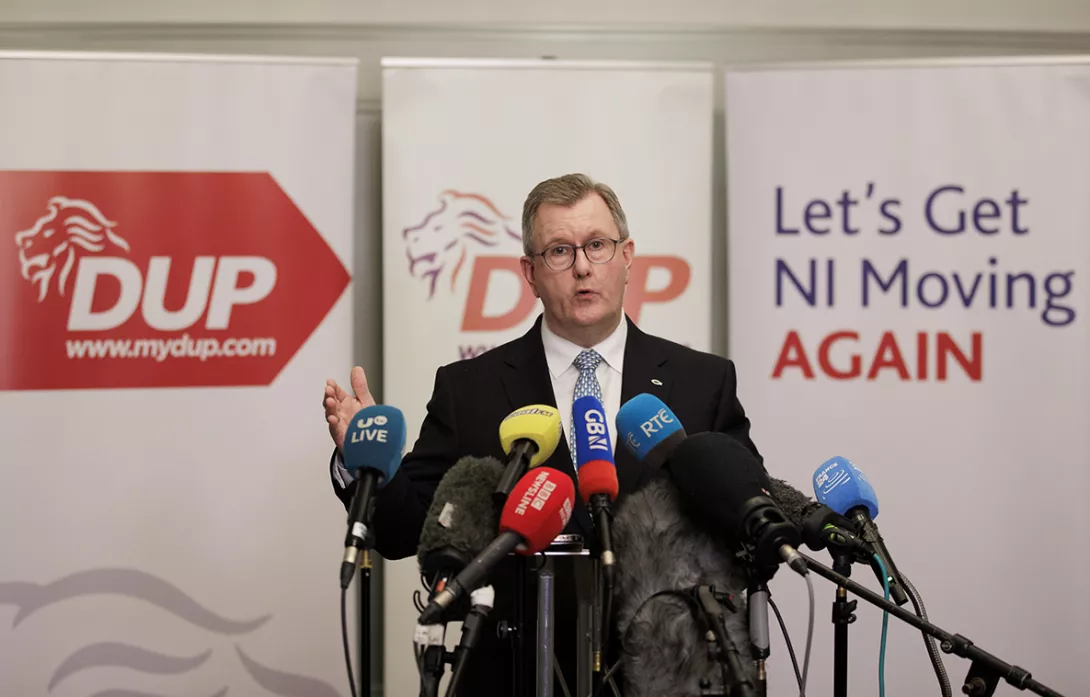A Sinn Fein-led Northern Ireland and prospects for reunification
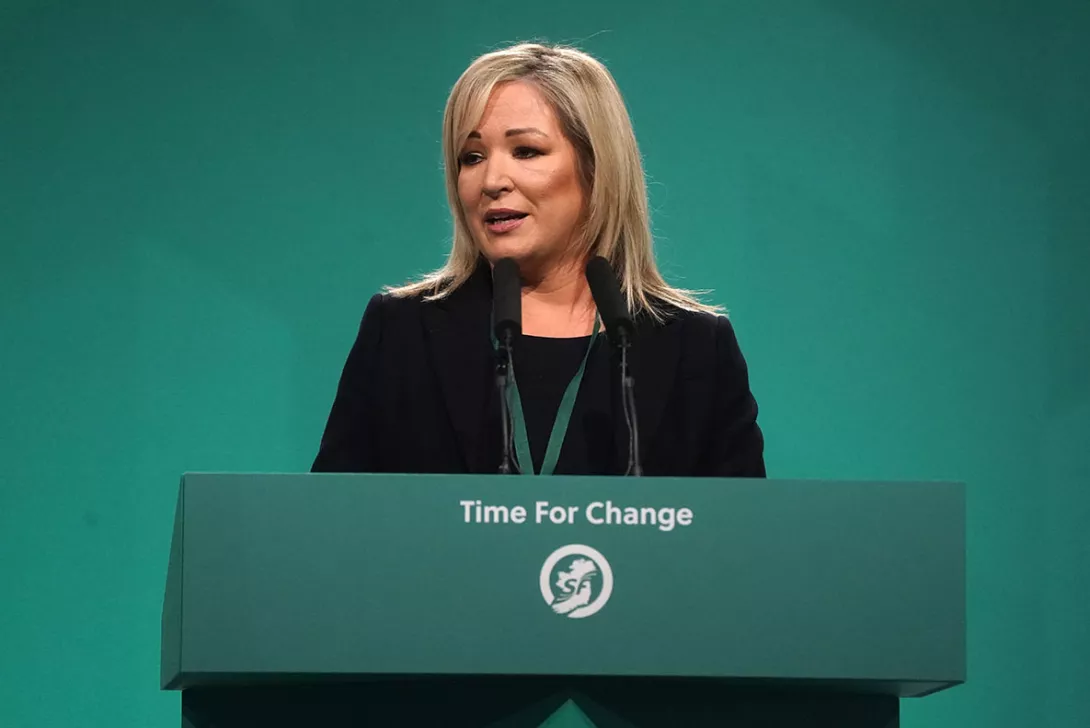
THE inauguration of Northern Ireland’s first nationalist first minister is a historic moment.
It shows that times are changing. A united Ireland in the medium-term future is now a realistic prospect, though powerful forces still obstruct it.
Obstruction is of course the reason why Sinn Fein’s Michelle O’Neill was only sworn in at the weekend, when her party became the largest in Stormont back in May 2022.
More from this author
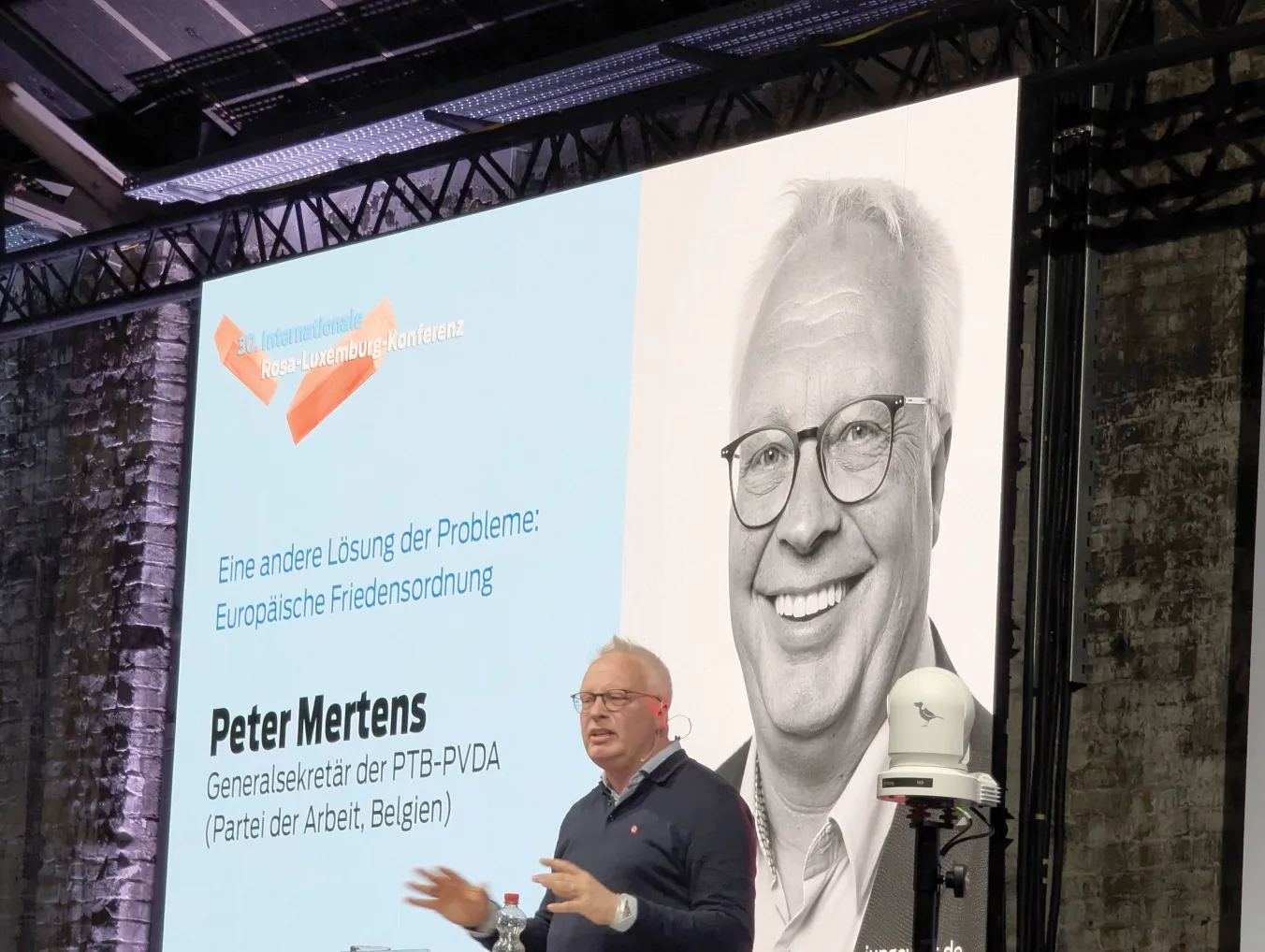
Morning Star editor BEN CHACKO reports from the annual Rosa Luxemburg Conference held last weekend in Berlin
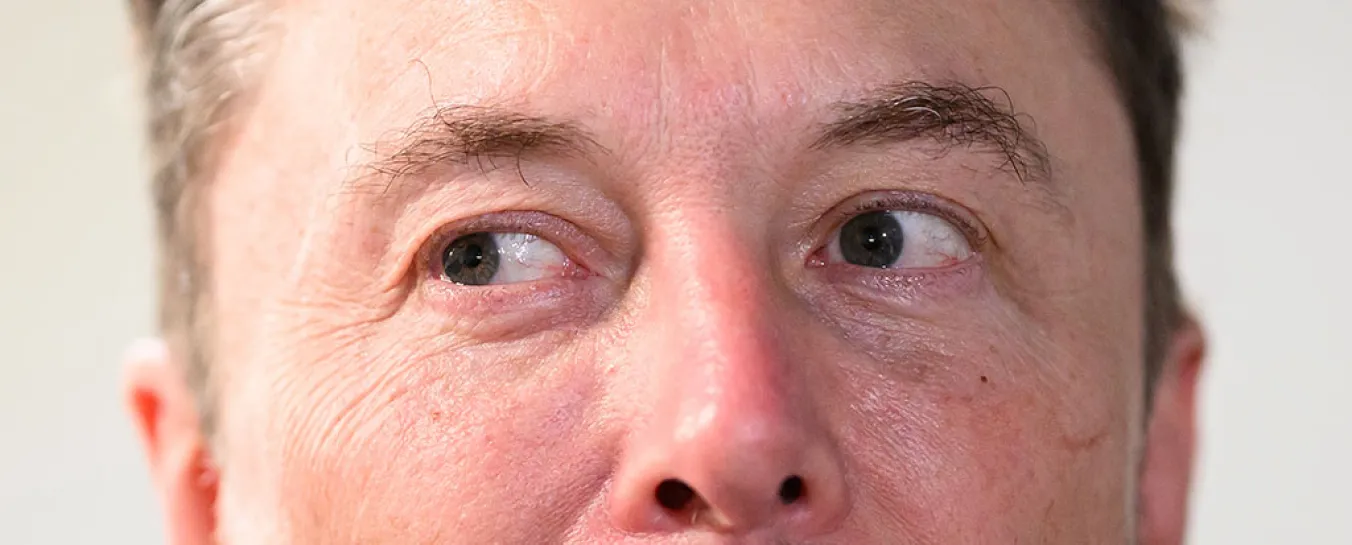
Morning Star editor BEN CHACKO says the status quo cannot last – but those currently poised to replace it would usher in a nightmarish new era
Similar stories
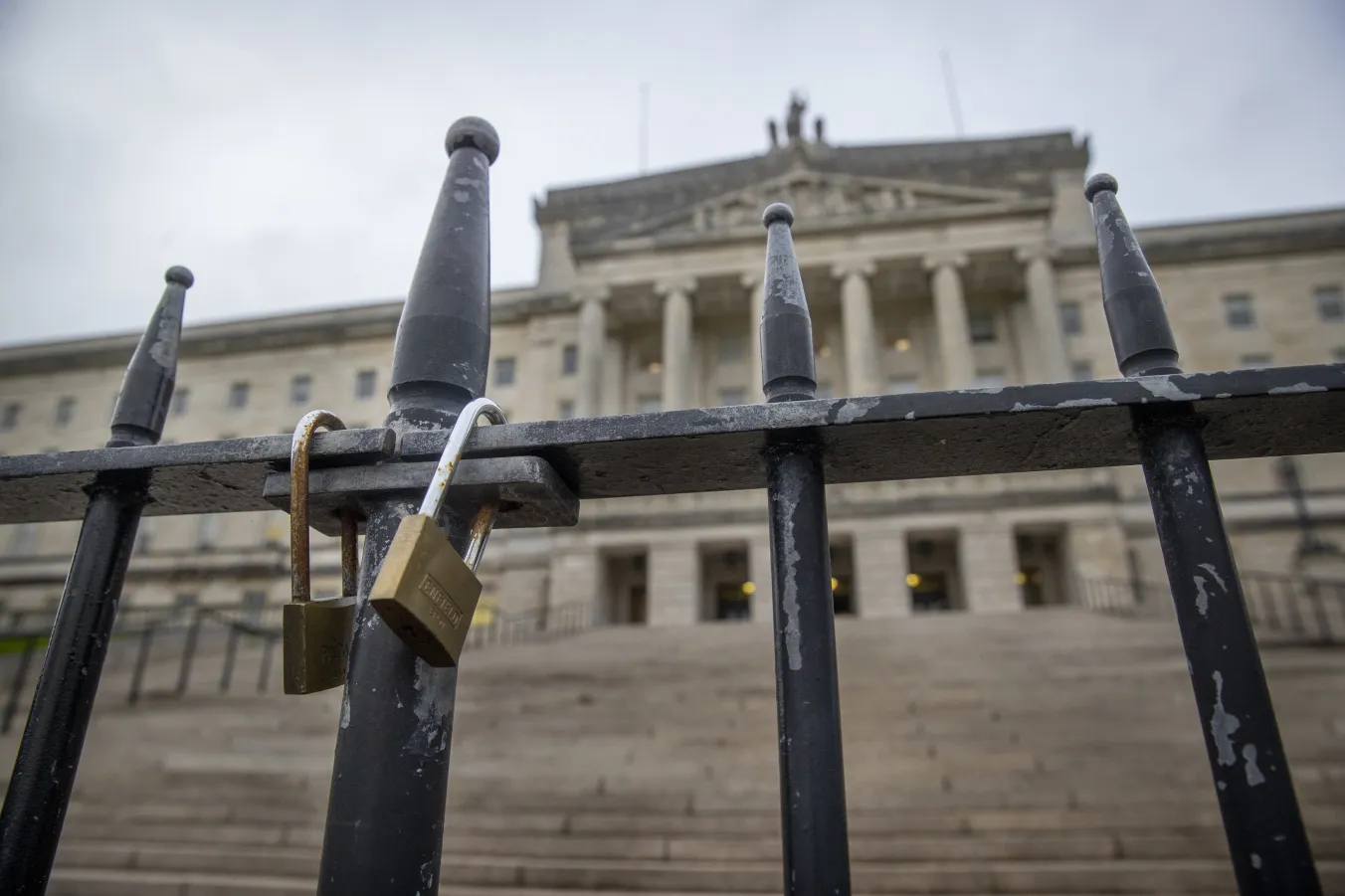
With the return of government to Stormont, and cracks showing in the political edifices of the DUP and Sinn Fein, is the door opening to an all-Ireland politics, asks NICK WRIGHT
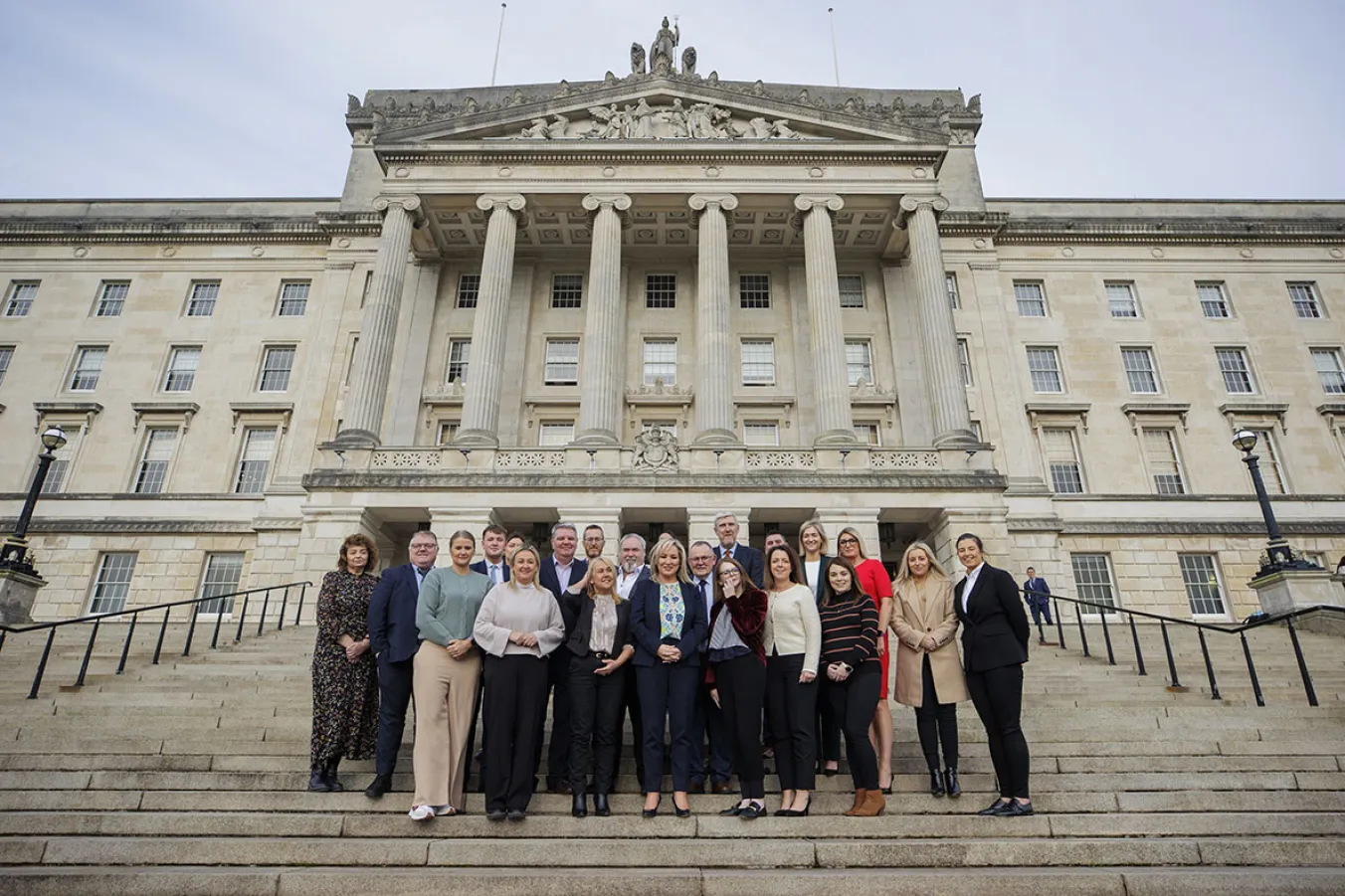
The Communist Party of Ireland warns that these latest developments do not represent a path to Irish unity and national liberation










